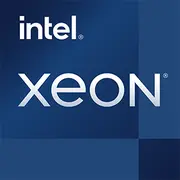Intel Xeon E-2104G

The Intel Xeon E-2104G processor is a solid choice for server applications, offering reliable performance and efficient power usage. With a 14nm technology, this processor is able to deliver a total of 4 cores and 4 threads, making it suitable for handling multiple tasks simultaneously. The 8MB L3 cache ensures that data can be accessed and processed quickly, leading to smoother operation and faster response times.
One notable feature of the Xeon E-2104G is its integrated UHD Graphics P630, which provides decent graphics capabilities without the need for a separate GPU. This is particularly useful for server applications that require some level of visual processing.
In terms of benchmarks, the Geekbench 6 scores for this processor are impressive, with a single-core score of 1121 and a multi-core score of 3164. This demonstrates its ability to handle both single-threaded and multi-threaded tasks with ease.
Overall, the Intel Xeon E-2104G processor is a reliable and efficient choice for server applications, offering good performance, power efficiency, and integrated graphics capabilities. It's a solid option for businesses and organizations looking for a processor that can handle demanding workloads without breaking the bank.
Basic
Label Name
Intel
Platform
Server
Launch Date
July 2018
Model Name
?
The Intel processor number is just one of several factors - along with processor brand, system configurations, and system-level benchmarks - to be considered when choosing the right processor for your computing needs.
Xeon E-2104G
Code Name
Coffee Lake-S WS
Generation
Xeon E (Coffee Lake)
CPU Specifications
Total Cores
?
Cores is a hardware term that describes the number of independent central processing units in a single computing component (die or chip).
4
Total Threads
?
Where applicable, Intel® Hyper-Threading Technology is only available on Performance-cores.
4
Basic Frequency
3.2 GHz
Max Turbo Frequency
?
Max Turbo Frequency is the maximum single-core frequency at which the processor is capable of operating using Intel® Turbo Boost Technology and, if present, Intel® Turbo Boost Max Technology 3.0 and Intel® Thermal Velocity Boost. Frequency is typically measured in gigahertz (GHz), or billion cycles per second.
N/A
L1 Cache
64 KB (per core)
L2 Cache
256 KB (per core)
L3 Cache
8 MB (shared)
Bus Frequency
100 MHz
Multiplier
32.0x
CPU Socket
?
The socket is the component that provides the mechanical and electrical connections between the processor and motherboard.
Intel Socket 1151
Multiplier Unlocked
No
Technology
?
Lithography refers to the semiconductor technology used to manufacture an integrated circuit, and is reported in nanometer (nm), indicative of the size of features built on the semiconductor.
14 nm
TDP
65 W
Max. Operating Temperature
?
Junction Temperature is the maximum temperature allowed at the processor die.
100°C
PCI Express Version
?
PCI Express Revision is the supported version of the PCI Express standard. Peripheral Component Interconnect Express (or PCIe) is a high-speed serial computer expansion bus standard for attaching hardware devices to a computer. The different PCI Express versions support different data rates.
Gen 3, 16 Lanes (CPU only)
Memory Specifications
Memory Type
?
Intel® processors come in four different types: Single Channel, Dual Channel, Triple Channel, and Flex Mode. Maximum supported memory speed may be lower when populating multiple DIMMs per channel on products that support multiple memory channels.
DDR4
Memory Channels
?
The number of memory channels refers to the bandwidth operation for real world application.
Dual-channel
ECC Memory
Yes
GPU Specifications
Integrated Graphics Model
?
An integrated GPU refers to the graphics core that is integrated into the CPU processor. Leveraging the processor's powerful computational capabilities and intelligent power efficiency management, it delivers outstanding graphics performance and a smooth application experience at a lower power consumption.
UHD Graphics P630
Benchmarks
Geekbench 6
Single Core
Score
1121
Geekbench 6
Multi Core
Score
3164
Geekbench 5
Single Core
Score
792
Geekbench 5
Multi Core
Score
2379
Passmark CPU
Single Core
Score
1960
Passmark CPU
Multi Core
Score
5944
Compared to Other CPU
Geekbench 6 Single Core
Geekbench 6 Multi Core
Geekbench 5 Single Core
Geekbench 5 Multi Core
Passmark CPU Single Core
Passmark CPU Multi Core
Share in social media
Or Link To Us
<a href="https://cputronic.com/en/cpu/intel-xeon-e-2104g" target="_blank">Intel Xeon E-2104G</a>